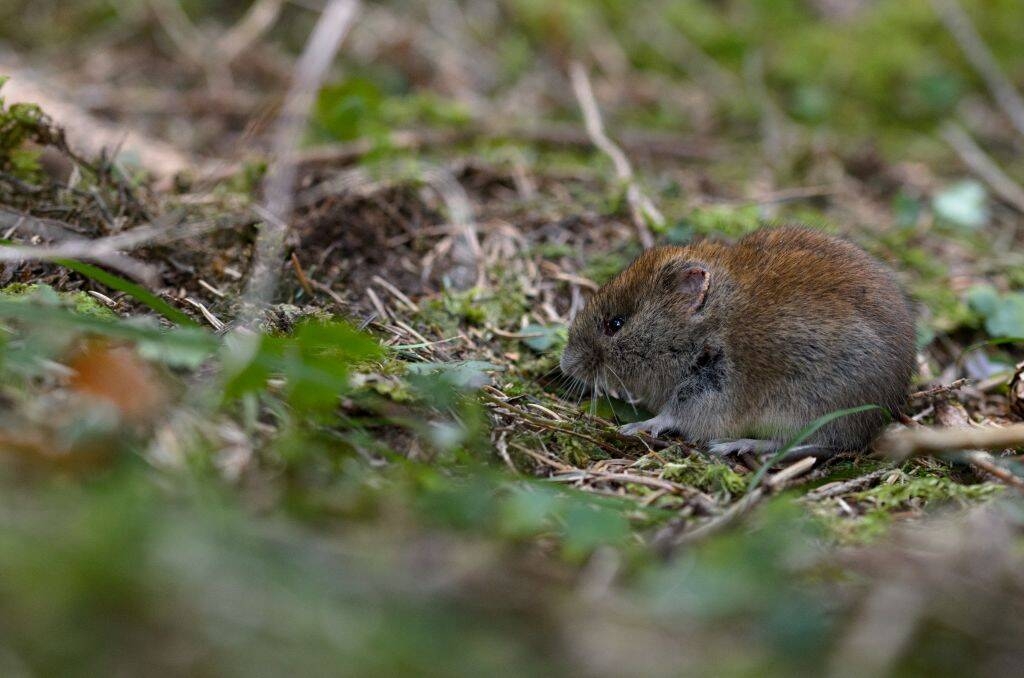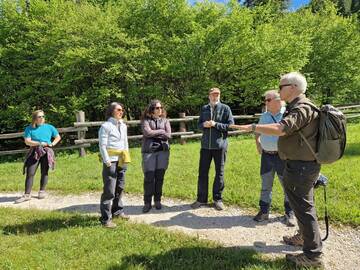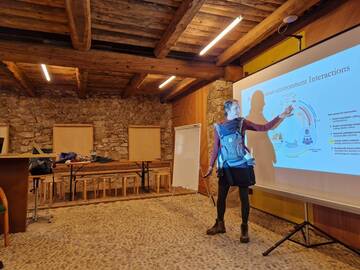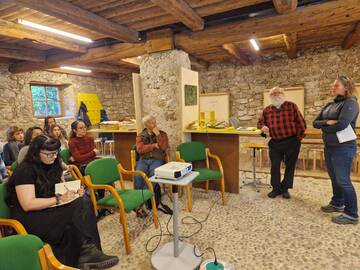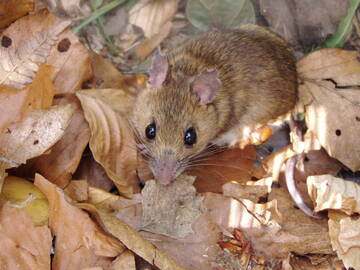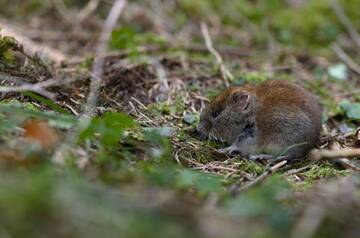The ecology of forest rodents and the diseases they transmit were the focus of an international meeting held from May 26 to 30 in Tonadico, at Villa Welsperg. The event was organized by the Edmund Mach Foundation (FEM) in collaboration with the Paneveggio-Pale di San Martino Nature Park.
FEM researchers, together with international experts from prestigious American and European universities, discussed ecological and socio-economic factors linked to the emergence of zoonotic diseases—those transmitted from animals to humans—with particular focus on those carried by wild rodents.
During the Tonadico workshop, it emerged that climate change and extreme weather events—such as the Vaia storm—may increase the risk of diseases transmitted by rodents and ticks. However, the implementation of good practices, such as those adopted for years by the Paneveggio Park, can significantly reduce zoonotic risk. These include forest management strategies aimed at increasing structural and species diversity, alongside the continued practice of alpine pasture management and mountain livestock farming. Sustainable agricultural and livestock management approaches that promote high plant and animal biodiversity, supported by education and prevention activities under a “One Health” approach, were highlighted as effective risk mitigation strategies.
FEM and the Nature Park are partners in an international project funded by the European Commission, called BEPREP, which aims to identify best practices for reforestation and environmental restoration while minimizing the risk of zoonotic disease spread. Within this project, FEM researchers are carrying out numerous scientific activities, also supported by the National Alpine Hunting Association (Unione Nazionale Cacciatori Zona Alpi).
Rodents, due to their widespread presence across natural, agricultural, and urban habitats and their rapid life cycles, are considered excellent model systems to study how socio-economic and environmental changes—such as climate change and related restoration efforts—can influence the spread of diseases transmissible to humans. More broadly, these small mammals play a key ecological role. They contribute to seed, pollen, and fungal spore dispersal and help mix the soil, thus influencing vegetation composition and forest regeneration. Rodents are also a crucial link in the food chain, serving as prey for many reptiles, birds, and mid-sized mammals. However, they are also known reservoirs for numerous microorganisms and parasites that can be transmitted to humans, livestock, and pets.

